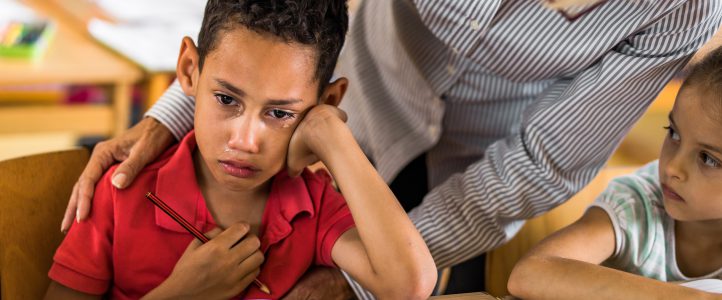
Why We Need Trauma Responsive Schools
Children who have experienced trauma exist in every school across America. According to the National Center for Mental Health Promotion and Youth Violence Prevention 25% to 30% of children experience trauma. We must understand that in adult-managed places, like schools, there are children who do not trust the guidance of adults. This is not because of anything the school staff have created. A perception is formed over time based on the experiences that children have through adults. We have to teach adults how to make necessary adjustments, so that children can increase their capacity to tolerate their guidance.
From Trauma-Sensitive to Trauma-Informed to Trauma Responsive Schools
Trauma sensitive means that we are aware and we have some compassion and empathy about the impact of trauma. Trauma-informed means that we are going to take the time to be trained to inform and modify our practice as an educator. Trauma responsive means application and implementation holistically across our school culture. It will be part of the paradigm, the lens, through which our staff see the children we serve. All these elements are necessary to change the paradigm of how we support and educate our children in schools.
Is it Trauma, Mental Health, or Behavior?
Traumatic experiences can result in maladaptive behavior patterns and mental health diagnoses later in life. Some of the symptomology associated with certain diagnoses are the result of the impact of trauma. Therefore trauma, mental health issues, and behavioral displays exist on a continuum. They are interconnected and continuously impact each other. Children come to us with one brain, and we must address all areas of need holistically.
Trauma Responsiveness is a School Responsibility
Trauma is an experience defined as negative, that exists over time, without the option of avoiding it, with no apparent relief in sight. Trauma has long-term impacts on what children perceive to be possible through the management and guidance of adults. A trauma responsive school embraces the fact that schools have the opportunity, as a platform that serves children, to model interactions that do not mirror what children have experienced with other adults in their lives; to build systems that assist children in learning a new way of interacting with adults that is not inclusive of fear.
Schools Must be a Safe Place From Community Violence
The research on the impact of violent communities and corresponding post-traumatic stress disorder is clear. Children experience a constant level of stress wondering not if, but when, a violent incident will occur. This is a very traumatic set of circumstances for children, particularly if it is the community they live in, the home they live in, or both. That is why schools need to be a place where children feel safe. A platform where nurturing opportunities and experiences are purposely practiced and modeled that create new possibilities and pathways.
For more information on Teach to Heal, please click here to contact Teach to Heal team.
